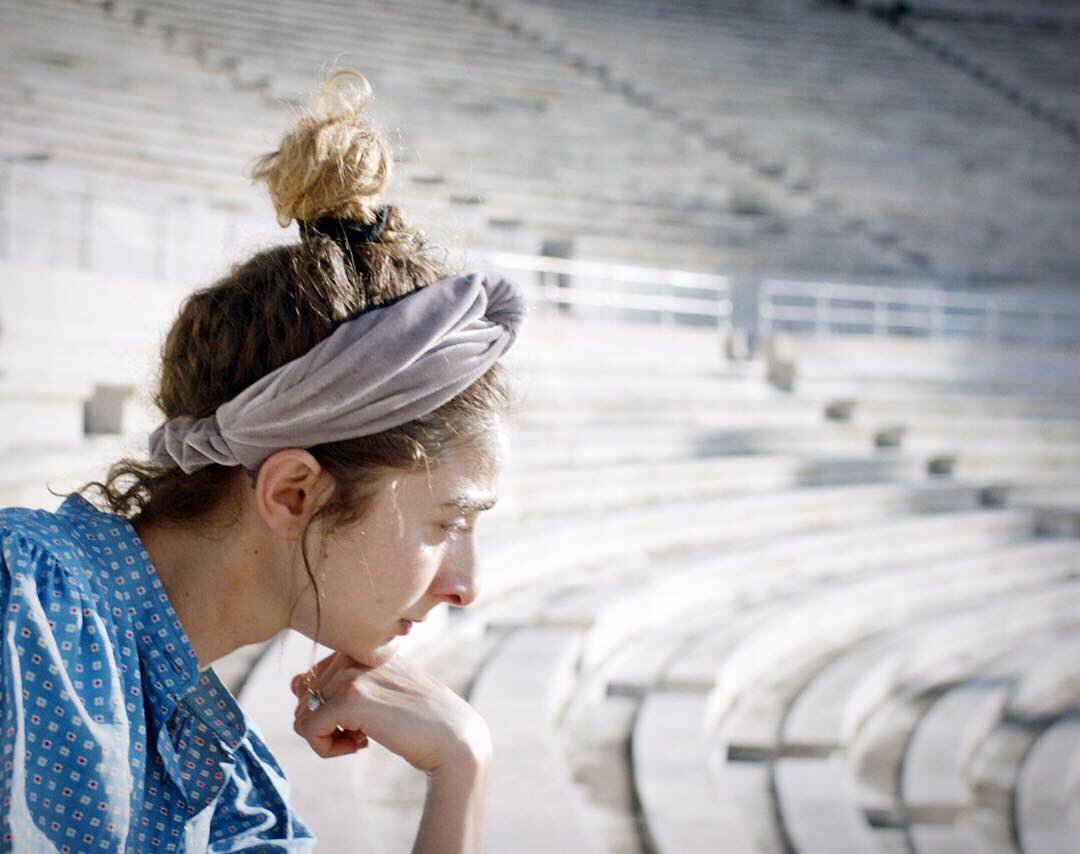Alexi Pappas: Gaining Perspective at Maclaren Marathon
Alexi Pappas reflects on how a change in perspective can refresh your approach to running. Photo: Alexi Pappas
By Alexi Pappas / TrackTown USA
For many runners, from professionals to enthusiasts, our sport becomes something to complain about. We moan about the weather, crowded trails, old shoes, aching muscles, past injuries – it’s easy for us to focus on the negatives rather than relish in the positives. It’s only natural. After all, running is a sport that attracts perfectionists – we are always striving to improve ourselves – and it’s our instinct to focus on what we want to change and improve. It’s easy to blame external circumstances for poor performances or bad workouts, but the truth is, for most of us, the only thing limiting our running is ourselves. It just sometimes takes a change in perspective to realize it.
Earlier this spring, I had the opportunity to meet a group of runners who completely refreshed my perspective. For them, running is the ultimate privilege. These runners were inmates at the MacLaren Youth Correctional Facility outside of Portland, OR, a prison for boys in their teens and early 20s. For these kids, running is a privilege they earn. Not everyone is allowed to run – it must be earned through good behavior. For those few who earn the privilege, running is a small taste of freedom in an otherwise restricted existence.
Here’s how it works: MacLaren offers rehabilitation programs, from barber training to mechanic classes to journalism courses, and one of those enrichment programs is the opportunity to train for a marathon. The entire marathon is run within the confines of the prison grounds with an interior circumference of a little over a mile. Most runners I know complain about running small loops – I myself have been known to get “tired” of the one-mile Amazon loop in Eugene I’ve come to know so well in my own training – but these young men relish the opportunity. Many of them actually know nothing about running when they sign up, but they do know it is something different and something, presumably, freeing. When they take up the opportunity to run, they learn quickly – in fact, the Eugene Marathon’s own Ian Dobson was a volunteer coach at the program, introducing the inmates to the fundamentals of training and recovery.
Ian was actually coaching me for the 2016 Rio Olympics during the same time that he started volunteering as a coach for the MacLaren marathon program. At the time, my focus was completely on preparing for the Olympics – fine-tuning my performance at the absolute highest level. At that elite level, you’ve got to focus in on “first world problems,” like making sure you’re using the absolute best equipment, training in the ideal conditions, and fueling in just the right way. I remember Ian telling us why he couldn’t be there for some of our weekend training, because he was coaching at MacLaren an hour away in Woodburn, but I didn’t think much more about the program at all. I assumed that all of my energy should be on my own Olympic preparation and I never took the opportunity to go with Ian and help out myself.
But now I understand what Ian got out of his trips up to MacLaren to work with the inmate-athletes: perspective. Transitioning from an environment where elite athletes are paid to run to a situation where kids are grateful for the chance to run circles around a fenced-in yard is a powerful dose of reality. It’s a reminder of why we love to run in the first place.
I experienced this firsthand during my own trip to the MacLaren prison marathon. The running program in the prison culminates in an actual 26.2-mile race around the prison grounds. I was there with a camera crew from Vice, who was creating a short documentary about race day in the prison.
The first thing I did when I arrived was get introduced to the athletes. I expected to meet driven, focused youth, but my expectations were exceeded when I met one kid in particular, Johnathan. I remember the first thing I noticed was the book Johnathan carried under his arm: Mastery, by Robert Greene. This is a book one of my coaches once handed to me and I still reference it today. Johnathan explained to me that one of his fellow MacLaren-mates, a mentor of his, passed the book along to him. He told me about this tradition of some of the boys sharing resources like this, in hopes of passing along the skills and leadership – and hope – that might help them succeed when they re-enter the community. Johnathan and I instantly connected over having similarly profound experiences with this book and I also fundamentally appreciated his desire to be a role model.
Johnathan told me how he spends time training young inmates in the gym as a personal trainer, and then we actually went to the gym together and shared with each other our favorite routines. I felt lucky to learn from him and I am so confident that he will help many people when he re-enters the community.
For Johnathan, this was not his first marathon – he considered himself a “seasoned” marathoner, having competed in the last two editions of the MacLaren marathon program. Out of the other six inmates competing, only one had completed a marathon before. We had a pre-race pasta dinner together which was as surprising to me as it probably was for them. I expected to be surrounded by prerace nerves and anxiety. But what I found was a table full of confidence. For these boys, there was no question as to whether or not they would be able to complete the marathon distance. They expressed to me that compared to the experiences they’d had in their lives, a physical challenge like this – something as simple as running – seemed entirely possible.
Still, the boys looked to me for pre-race advice. So I shared the only tidbit that I thought might be helpful: I told them that I was not necessarily “meant” to make the Olympic team. I told them how I used to be the worst runner on my college team and slowly improved year by year, learning from mentors and teammates around me. Nobody expected me to ever break the top 10 on my team, let alone qualify for the Olympics. I think this was surprising to Johnathan and the others: our circumstance now is not forever. We can take control of our future if we choose.
Then the marathon happened, and Johnathan was the athlete who cheered on everyone around him even when he was in pain. He himself was one of the slower runners, but he eagerly supported when his teammates lapped him. I walked the last five miles with one of the athletes, for whom marathon cramps set in late into the race. While walking, he told me that he will be finished with his sentence and re-enter the community in a few short months. The first thing he wants to do when he leaves: go camping for the first time. For him, running has been the best way to engage with nature while in the facility – something I take for granted when it’s pouring rain and I would rather not go outside to train. The next time I even consider staying inside because the weather isn’t perfect, I’m going to think of Johnathan and get myself out the door.
All of the athletes completed the marathon, even if it meant walking the last five miles with me. Johnathan and the other inmates helped me understand how grateful he was to run – an activity I now understand he sees as a privilege, not a right. I think about running differently now that I have met Johnathan. Johnathan’s goal is to one day compete in the Eugene Marathon and I hope I am there to cheer for him when he does.
During training – whether we’re building up for a 5k or a marathon or the Olympics – it’s easy to fall into a trap of non-gratitude. We focus on the minutiae and obsess with how we can maximize each little bit of our training. But taken too far, this leads to resentment and bitterness. Nothing’s worse than a bitter runner. So every now and then, it’s good to reconnect with what made us love running in the first place. Maybe it doesn’t require a visit to a prison. But seeing those young adults feel free – even as they ran in circles around the prison yard – made an impression I’ll keep with me always. It reminded me to be grateful for every step.

